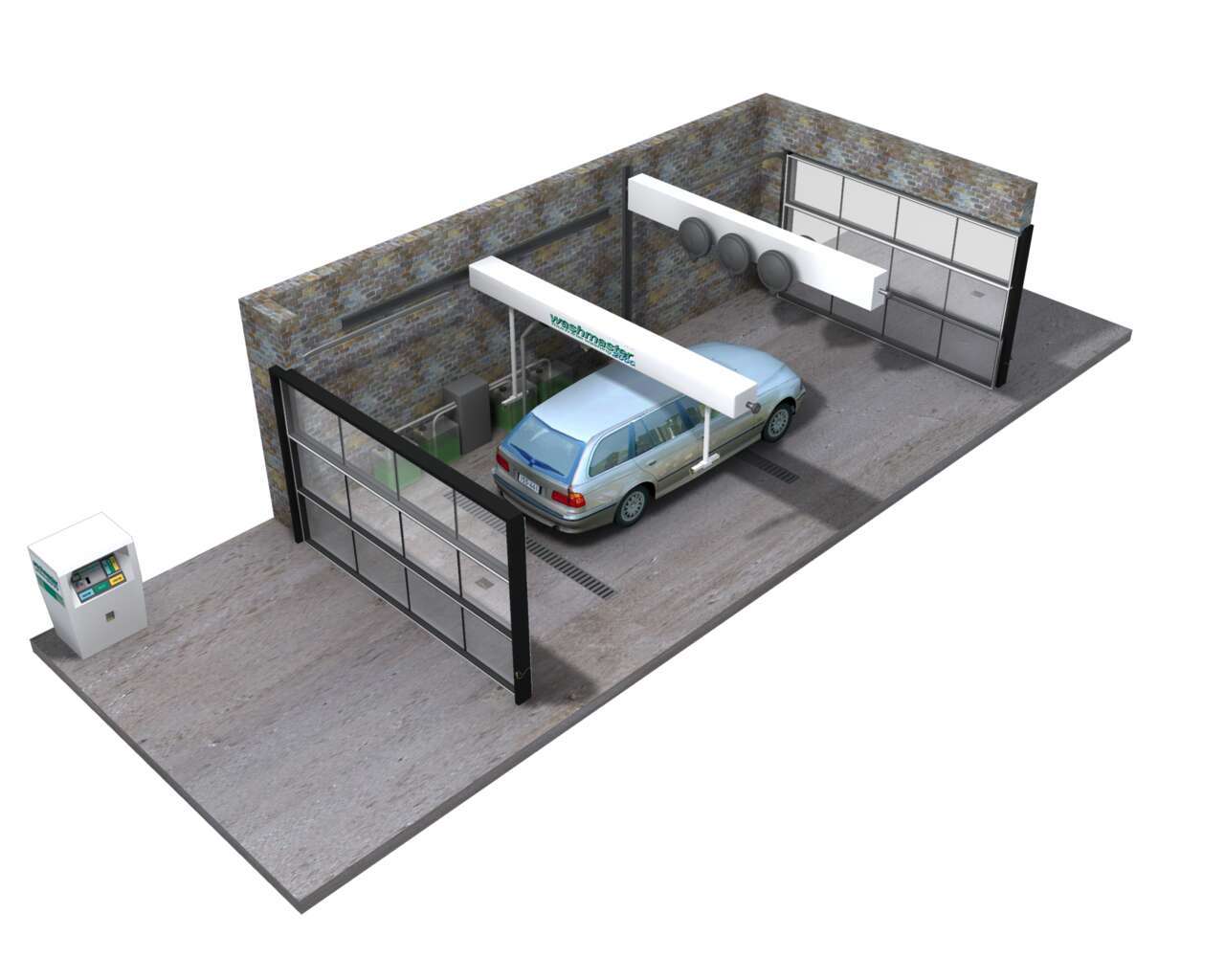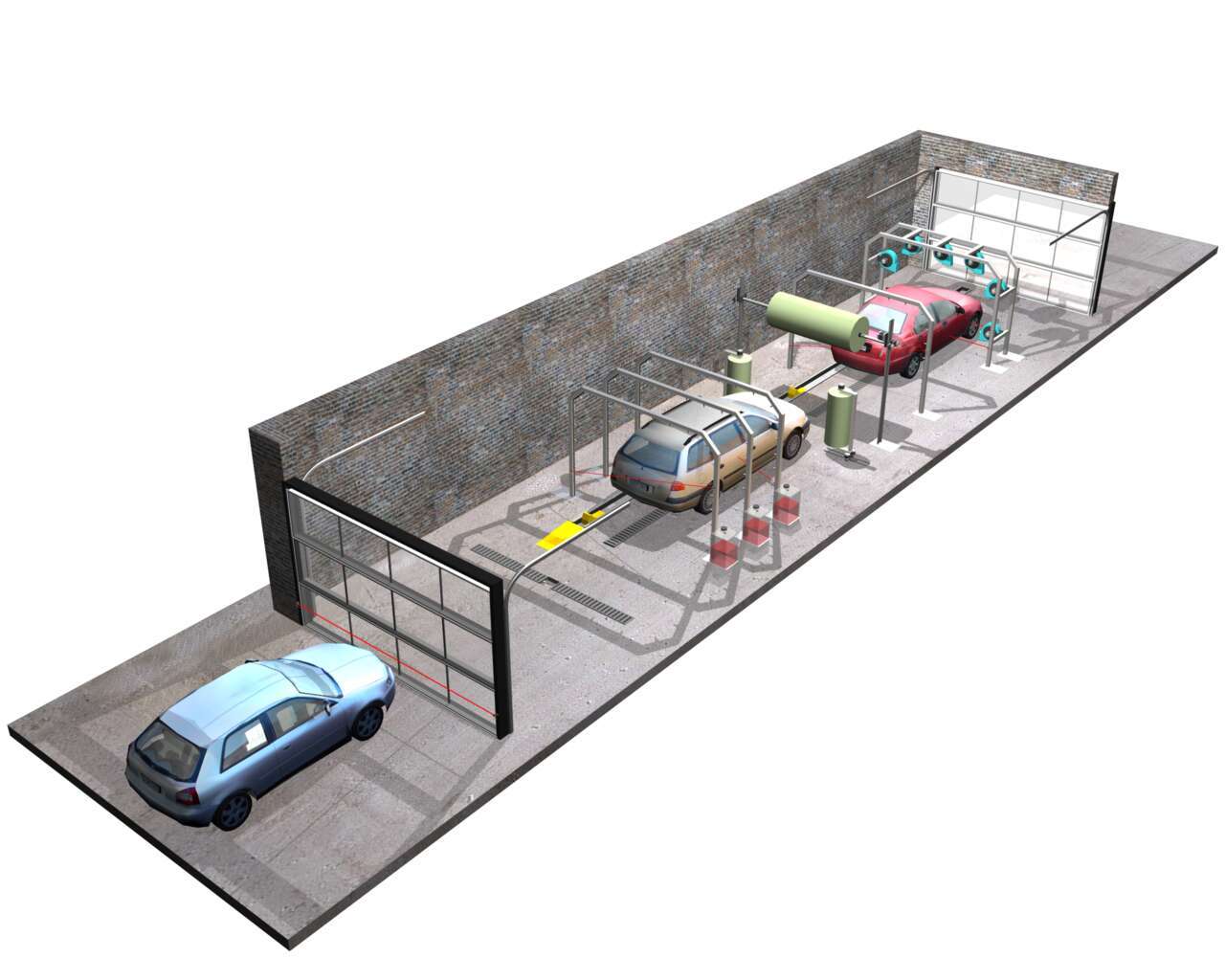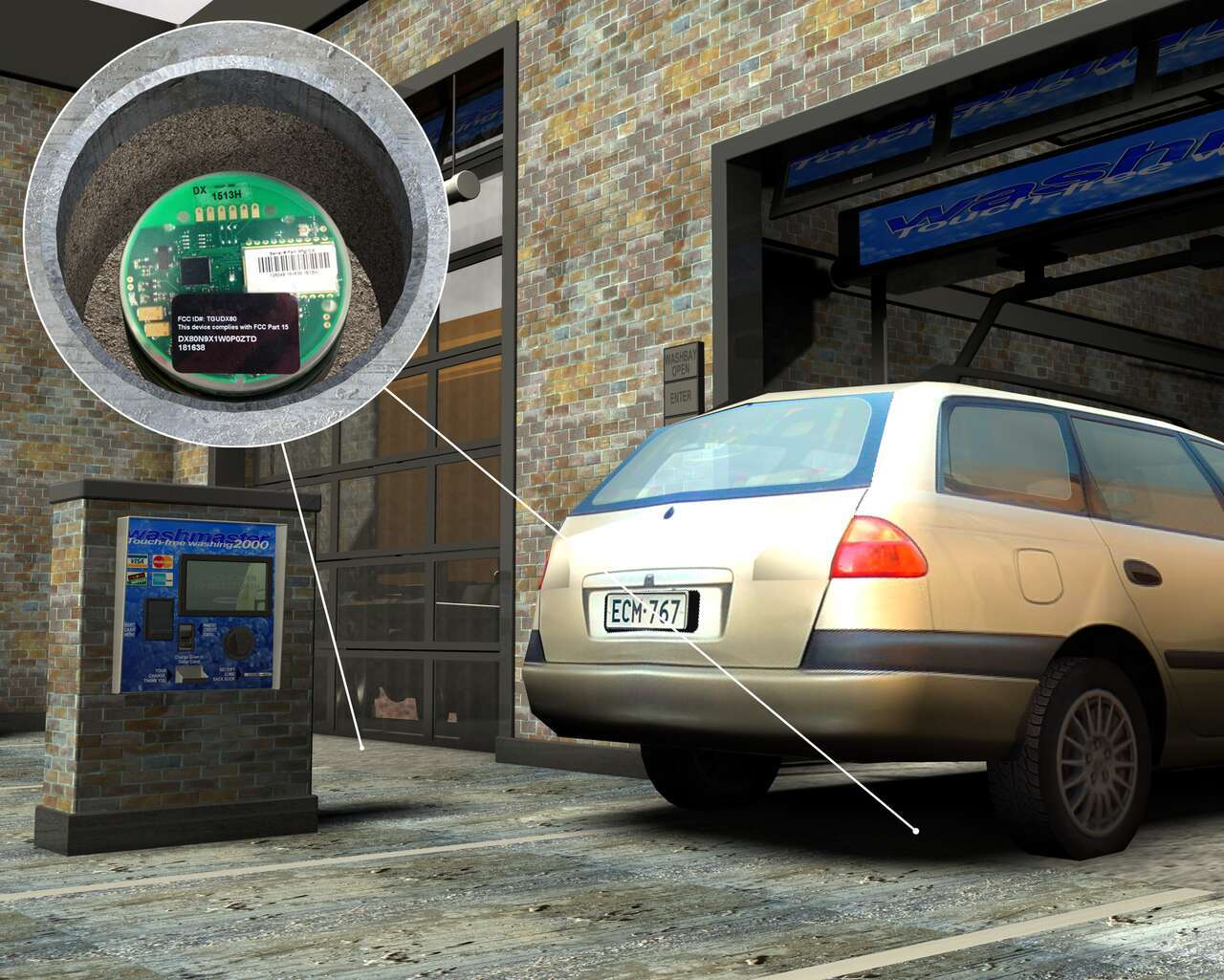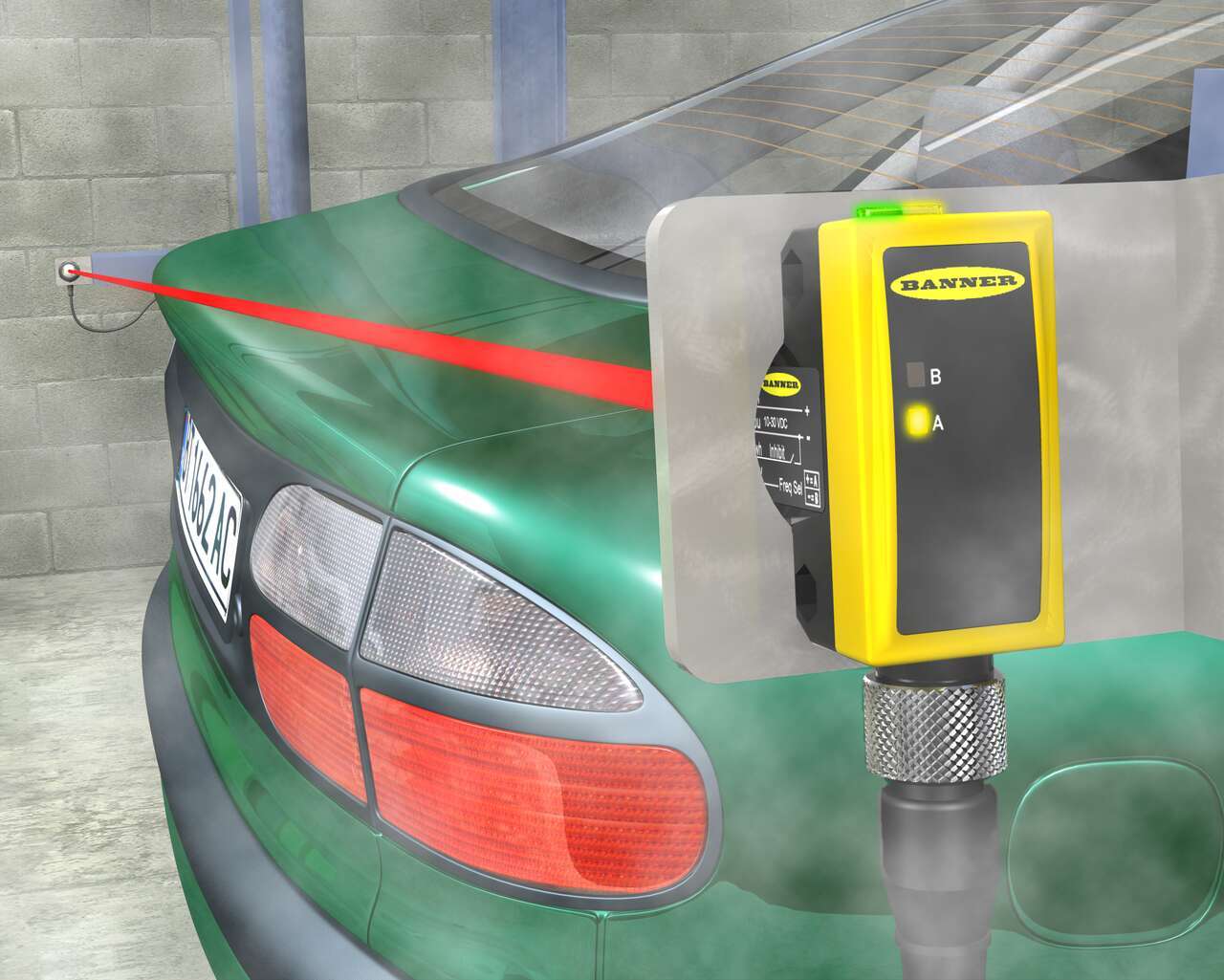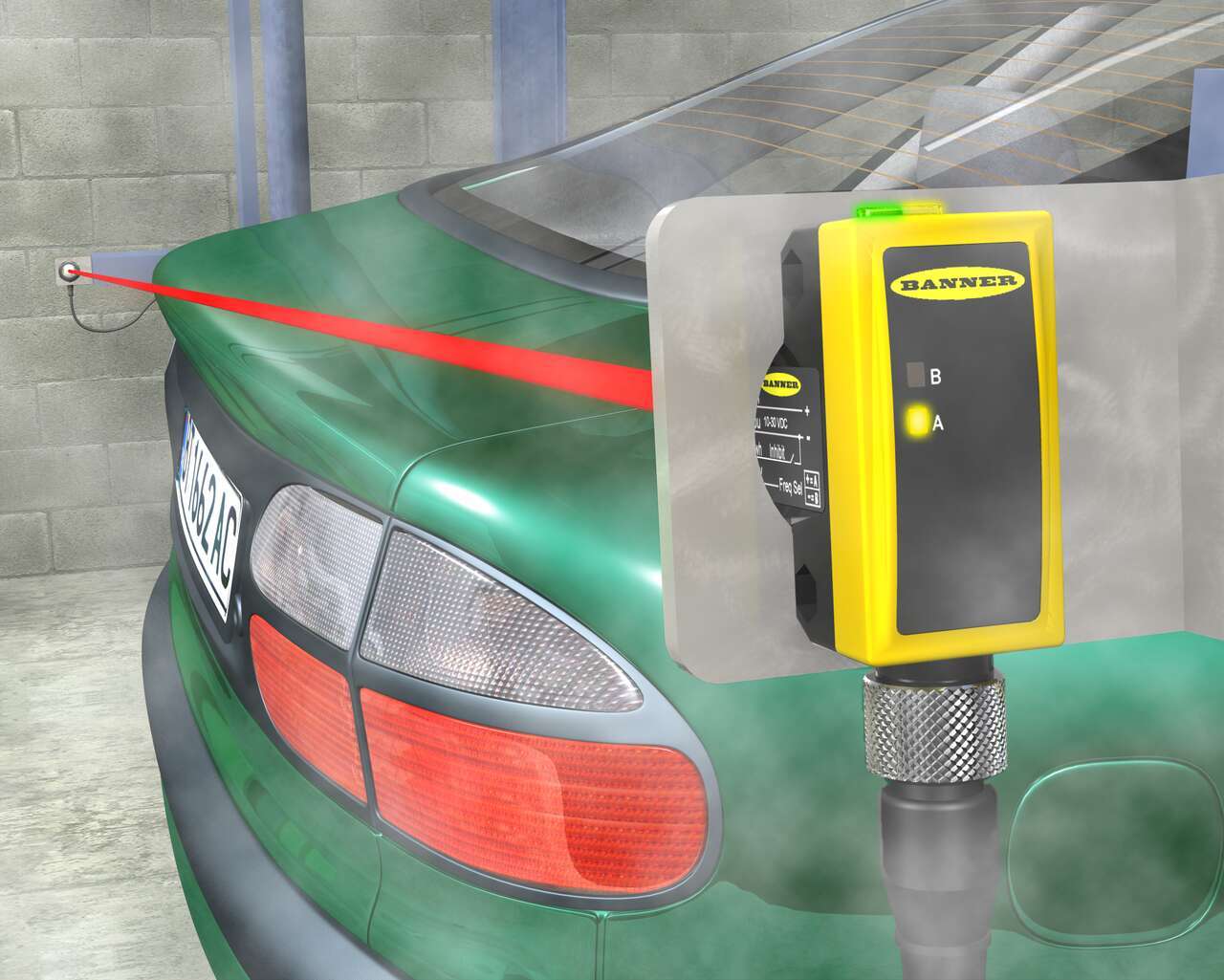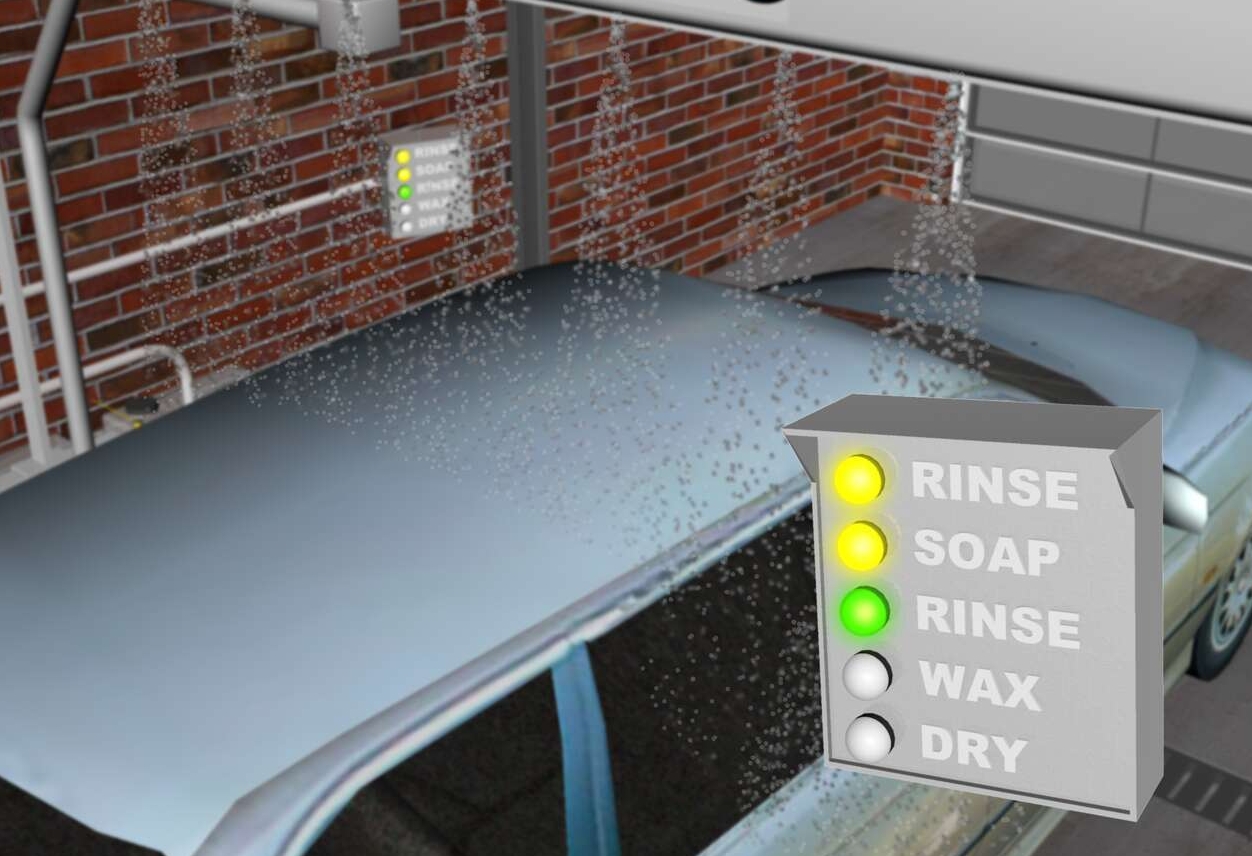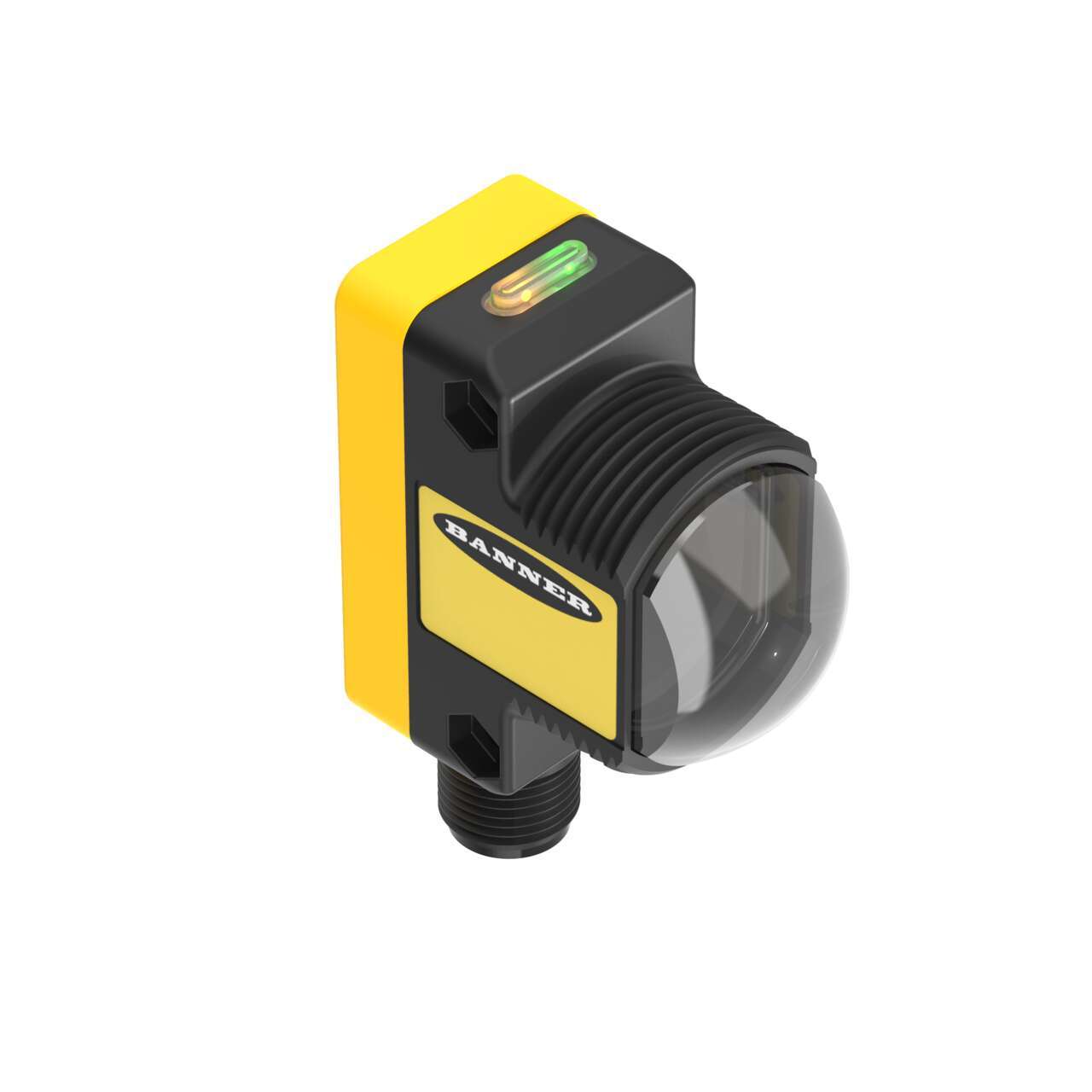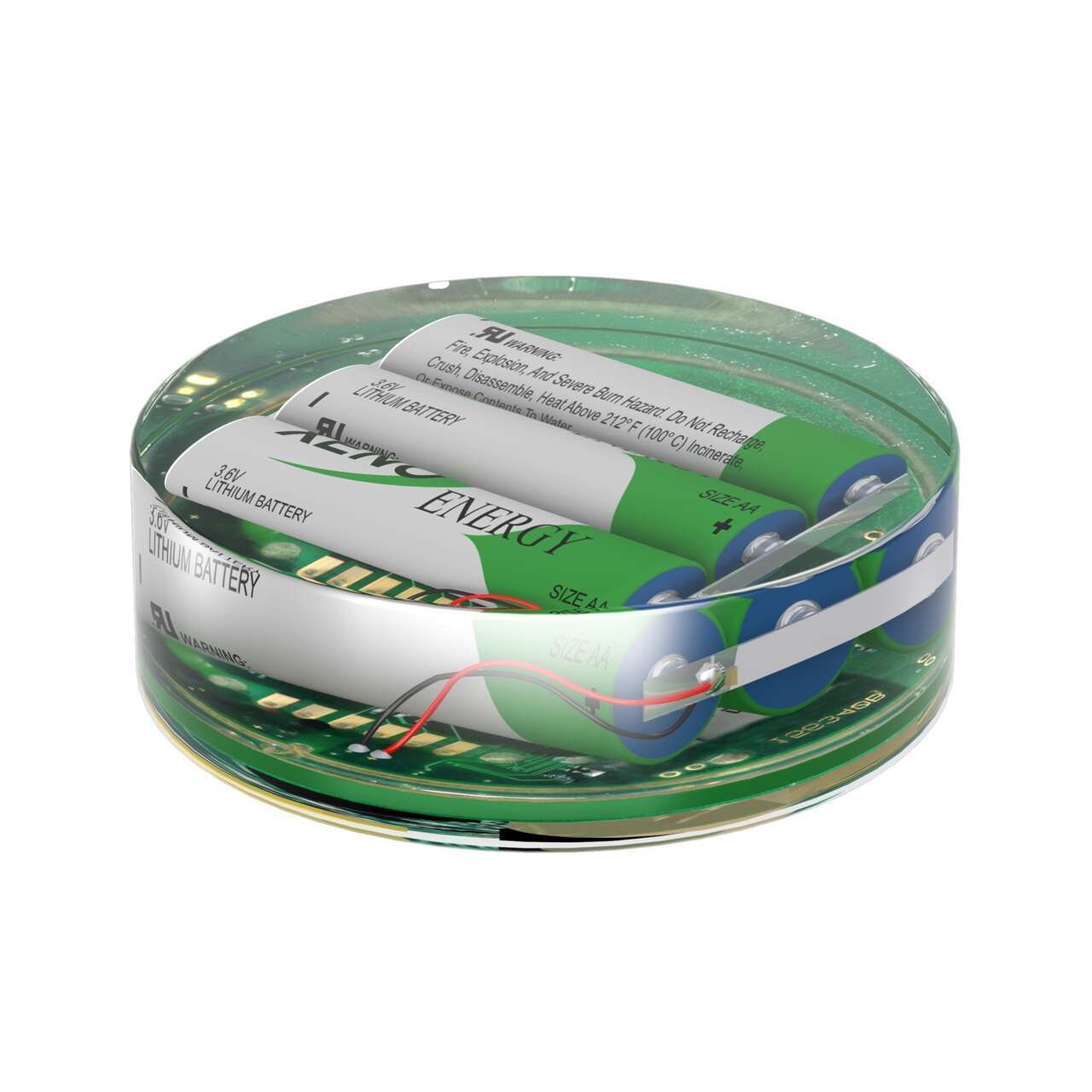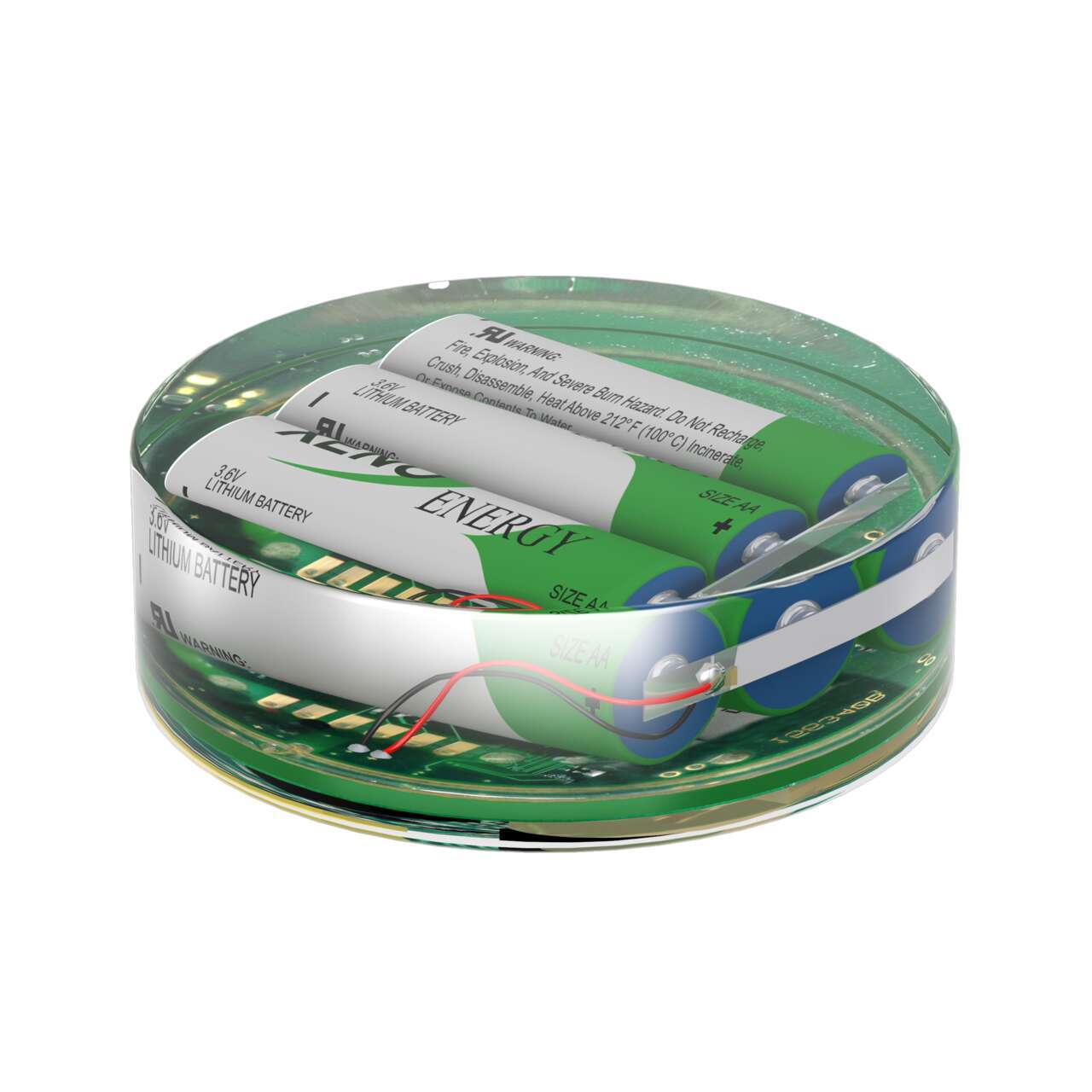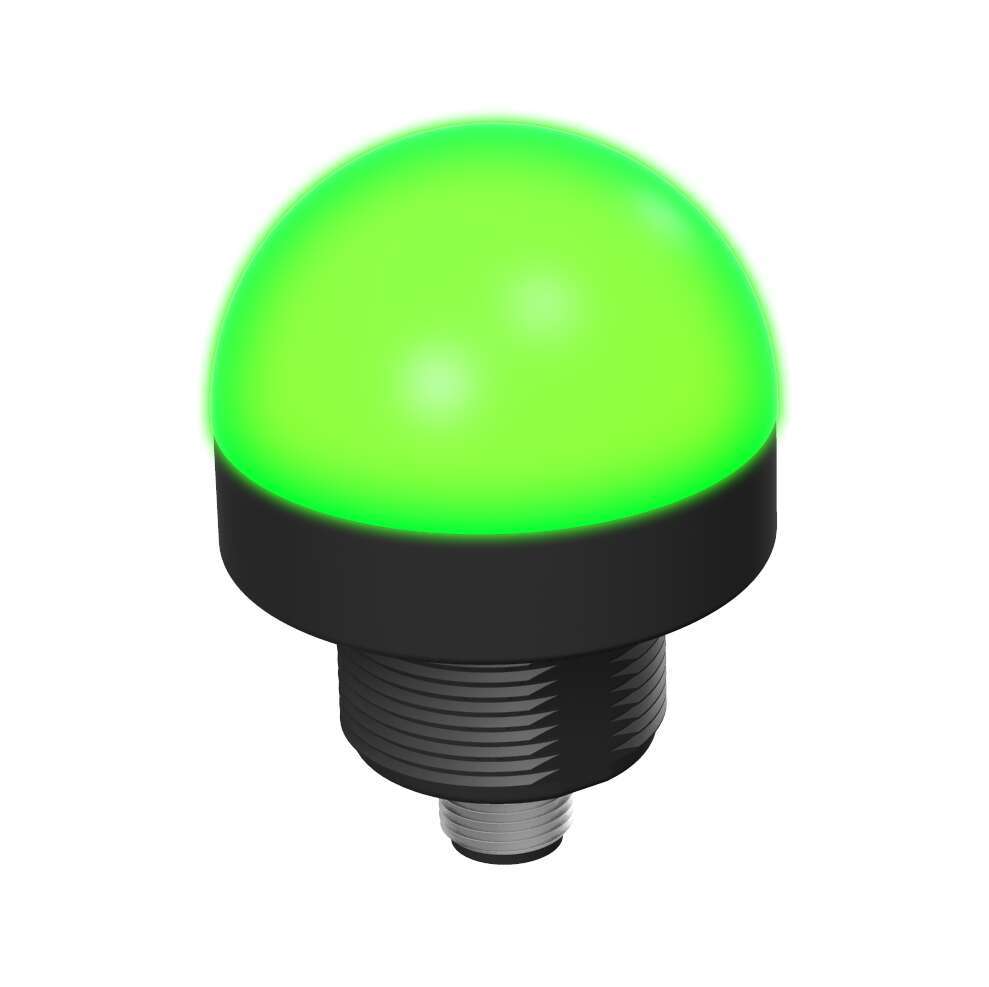Vehicle Detection at a Car Wash
Keep Automated Car Washes Running Smoothly
Vehicle detection at a car wash is essential to verify that vehicles are correctly positioned in the car wash bay, monitor the flow of traffic through the car wash, and trigger next steps such as opening and closing entry and exit doors.
However, harsh conditions both inside and outside of a car wash pose many challenges to traditional equipment, and heavy-duty solutions are required to withstand the environment.
Keep reading to learn about technologies that provide reliable vehicle detection in these difficult conditions.
Car wash facilities often require vehicle detection both outside and inside of the car wash bay to ensure proper flow of traffic and trigger automated entry and exit doors. These applications can be challenging for many sensors due to the harsh conditions both inside and outside of the facility.
Outside of the car wash, sensing technology is exposed to variable weather conditions, like wind and rain, that can impact sensor performance.
Meanwhile, inside of the car wash bay, ever-present water, extreme changes in temperature, sunlight, reflective surfaces, mist and steam, and the constant cycling of machine movement are factors that all must be considered when selecting a sensor for reliable vehicle detection.
Detection at an Automated Car Wash Entrance
Application: Detecting vehicles at the entrance of a car wash to trigger automatic doors.
Challenges: The sensor is exposed to harsh outdoor environments that can impact sensor performance. In addition, a minimally invasive solution is required to reduce costly downtime.
Solution: A wireless sensor like the M-GAGE from Banner is a compact, minimally invasive, and cost-effective solution. Vehicle presence is detected by a node that activates the automated car wash system to power up and trigger the entry door.
Benefits: An wireless sensor node eliminates the need for a large and invasive inductive loop. The wireless node requires no wiring or external control box, but it achieves an accurate and repeatable response. The compact, fully-encapsulated device withstands harsh weather conditions and may be mounted above ground or below ground.
Detection Inside a Car Wash Bay
Application: Sensing vehicles as they travel through cycles of a car wash.
Challenges: Inside the car wash, extreme conditions like high pressure, drastic termperature changes, mist, steam, and humidity can impact sensor performance.
Solution: A high-performance long-range photoelectric sensor that is epoxy-ecapsulated and IP69K-rated for use in wet environments. In the image to the right, the QS30EXQ emitter and QS30RRXQ receiver are configured in opposed mode to verify that a vehicle has passed completely through the drying stage of wash, signaling the car wash is ready to allow another vehicle to begin a cycle.
Benefits: Sensors with epoxy-encapsulated electronics prevent water ingress from destroying the sensitive components, and IP69K-rated housings can withstand the constant presence of water and extreme temperature swings. In addition, sensors with a 875 nm wavelength infrared light can burn through mist and steam for reliable sensing.
LED Indicators Provide Clear Visual Feedback
A car wash vehicle detection solution would not be complete without status indication. Bright, LED indicator lights provide visual confirmation to customers that their vehicle is positioned correctly and that the car wash cycle is beginning. Multiple indicator lights can be used to clearly display which stage of the car wash cycle is in progress.
Similar to sensors, LED lights can be easily damaged by the environment of the car wash bay, so choosing an indicator rated IP69K is essential.
High Performance Photoelectric Sensor
- Innovativo design della custodia di 30 mm, adatta praticamente a ogni requisito di montaggio
- Rilevamento a potenze elevate con portate fino a 200 m
- Disponibile nelle versioni emettitore/ricevitore, emettitore/ricevitore a potenza elevata, a riflessione polarizzata e non polarizzata, a tasteggio diffuso, laser, a campo fisso e a campo regolabile e per oggetti trasparenti
- Disponibile con laser visibile di Classe 1 (modalità a tasteggio diffuso e a riflessione) e Classe 2 (modalità a tasteggio diffuso)
- Tensione di alimentazione standard da 10 a 30 Vcc (con uscite bipolari NPN/PNP) o da 24 a 250 Vca e da 12 a 250 Vca (con uscita a relè elettromeccanico)
- Modalità di funzionamento luce o buio selezionabile o configurabile, in base al modello
- Grado di protezione IP67 o IP69K, in base al modello
- Indicatori LED di stato ad alta intensità luminosa, visibili a 360°
Wireless Magnetometer
Il sensore M-GAGE utilizza la tecnologia di rilevamento passivo per rilevare oggetti ferrosi di grandi dimensioni, come i veicoli a motore. Il sensore M-GAGE rappresenta una valida alternativa a sistemi a spira induttiva e non richiede un modulo di controllo esterno.
- Progettato per minimizzare gli effetti dovuti alle variazioni di temperatura e alla fluttuazione dei campi magnetici
- Il sensore apprende le condizioni ambientali e memorizza le impostazioni in un supporto non volatile
- Tecnologia FlexPower alimentata da una singola batteria al litio integrata nella custodia
- Trasmettitori-ricevitori per la comunicazione bidirezionale tra gateway e nodo, compresa la trasmissione di dati con conferma
- La custodia completamente integrata e sigillata contiene la batteria, il sensore e l'antenna, per una soluzione completamene wireless
LED Indicator
Il nostro indicatore più apprezzato. L'indicatore da 50 mm per uso generico è disponibile con entrambe le opzioni di alimentazione CA e CC.
- Indicatori facili da installare, economici e robusti
- La parte illuminata a cupola assicura un'ottima visualizzazione dello stato del macchinario e costituisce un chiaro punto di riferimento visivo per l'operatore
- Dispositivi compatti, completi di elettronica, non è richiesto un controller esterno
- Alimentazione da 18 a 30 Vcc; alimentazione da 85 a 130 Vca
- Utilizza fino a tre colori
- Immune alle interferenze EMI e RFI
